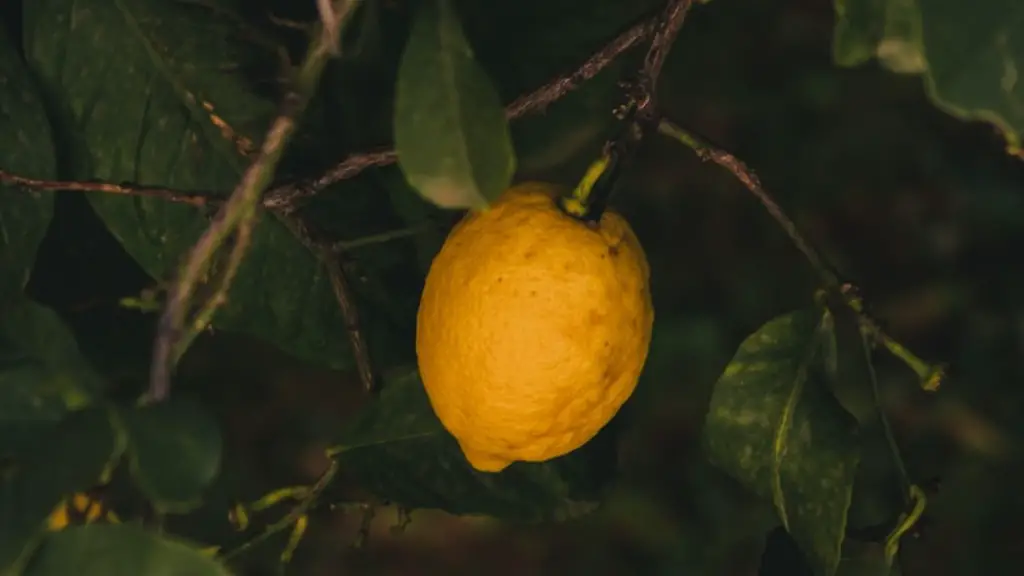Background Information
Avocado trees are an evergreen tropical tree that are grown for their fruit. The fruits of an avocado tree are healthy and deliciously rich in fatty acids, fiber, vitamins, and minerals; and have been popular in North and South American diets for centuries. The avocado tree is among the early fruits to be domesticated and it has been proved to have originated in South America. This plant species is endemic to Mexico and Central America, however, it is now grown in multiple countries throughout the world.
The scientific name of the avocado plant is Persea americana and it belongs to the Lauraceae family. Avocados are shrubs or small trees and can grow up to 80 feet with a single stem. The leaves of the avocado tree are large, elongated and dark green.
Germination and Growth
Avocado trees are easily grown from the seed, however, the plant grown from a seed is not always identical to the parent plant. It is difficult to predict how the seed will grow, as a single seed can produce several different avocado trees. Furthermore, the seed grown trees usually take longer to bear fruits than trees planted from scion wood, which is cut from the plant and grafted onto another.
Avocado trees of seed origin take up to 8 to 13 years to bear fruits, depending on the variety, while a grafted tree will take between four to five years to bear fruit. The other factor of time when it comes to the yield is climatic conditions, as avocados require mild temperatures to grow and bear fruit.
Careful Pruning and Fertilizing
The growth and production of the avocado tree can be maximized with careful pruning and fertilizing. Pruning is important and should be done at least once a year in order to keep an open and airy canopy. This will ensure adequate sunlight penetration that is necessary for photosynthesis. To achieve maximum fruit production and maximum crop production, pruning should be done in the periods of fruit flowering and fruit harvesting.
Fertilization for avocados is also essential for growth and production and should be done a couple of times a year. Slow-release fertilizers are recommended for avocado trees as these enable the accumulation of nutrients in the soil for an extended period of time. Fertilization should also be done a month before the harvest.
Harvesting
Before harvesting the fruit, it is important to determine the maturity stage of the avocado. Many people try to harvest the fruit early, but the fact is that the fruit should be left on the tree until it is fully ripe. The easiest way to determine if a fruit is ripe or not is to gently squeeze it and if it yields slightly, then it is ready to be picked. The fruits of the avocado tree are heavy so harvesting should be done carefully and slowly, as excessive shaking can lead to the fruit dropping or breaking.
Storage and Health Benefits
Once the avocados have been harvested they need to be stable and stored correctly, in order to extend the shelf life. Avocados need cool and dark storage, such as a refrigerator, and should be consumed within 48 hours after harvesting.
Avocado fruits are rich in essential vitamins and minerals such as vitamin A, E and C, potassium, magnesium and B vitamins. They are also an excellent source of dietary fiber and healthy fatty acids. Moreover, regular consumption of avocados can help to reduce cholesterol, prevent hypertension and reduce the risk of heart disease.
Environmental Impact
Avocado trees are usually grown in tropical climates and this usually means that the soils are fragile and can easily be damaged by over cultivation and poor agricultural practices. Moreover, in order to meet the increasing demand for avocados, a large number of trees are grown in monoculture, and this can further have an adverse effect on the environment. A single species grown on large scale can destroy the native biodiversity, increase the risk of pests and diseases, and increase the amount of chemical inputs.
Alternatives
A number of alternative methods are being used to cultivate avocados in order to reduce their environmental impact. It is possible to cultivate avocados without the use of chemical fertilizers and pesticides, and this is usually achieved by adopting traditional practices, such as crop rotation, companion planting and mulching. Furthermore, Integrated Pest Management (IPM) is also used to reduce the use of chemical inputs, and this can help to maintain a healthy and sustainable environment.
Organic Farming
Organic farming has been used for centuries to cultivate avocados and this has been gaining momentum in recent years. Organic farming involves methods and practices that are organic in nature and that work in harmony with nature, without the use of synthetic fertilizers or pesticides. It also advocates for sustainable agricultural practices that notably improve the health of soil, crops and the environment.
Organic farming can reduce the environmental impact of avocados and it is also beneficial for consumers, as organic avocados are free from synthetic chemicals and offer a higher nutritional value. Furthermore, organic farming also helps to reduce the mortality rate of pollinators and other beneficial organisms, as well as to conserve biodiversity.
Modernisation of Farm Practices
In order to maintain the production of avocados, modern technologies are now being used in a number of countries. This involves the use of advanced equipment and machineries, such as drones and robots. The use of modern technologies is aimed at reducing the labor costs and improving efficiency, which will ultimately lead to better yields and higher production.
The use of automated technologies also helps to reduce the use of chemical inputs and this will help to protect the environment. Moreover, modern technologies are also being used to track the performance of avocados, and this helps to maintain the quality of the fruits and the overall crop production.
Conclusion
The avocado tree is a staple crop in many countries and it is known for its delicious fruits and health benefits. In order to maximize the production of avocados and reduce environmental impact, careful pruning and fertilizing as well as careful harvesting techniques should be adopted. Alternatives, such as organic and integrated farming, are also being adopted in many countries and this is helping to reduce the environmental impact of avocados. Furthermore, modern technologies are being adopted to track and maintain the performance and productivity of the avocado tree.

